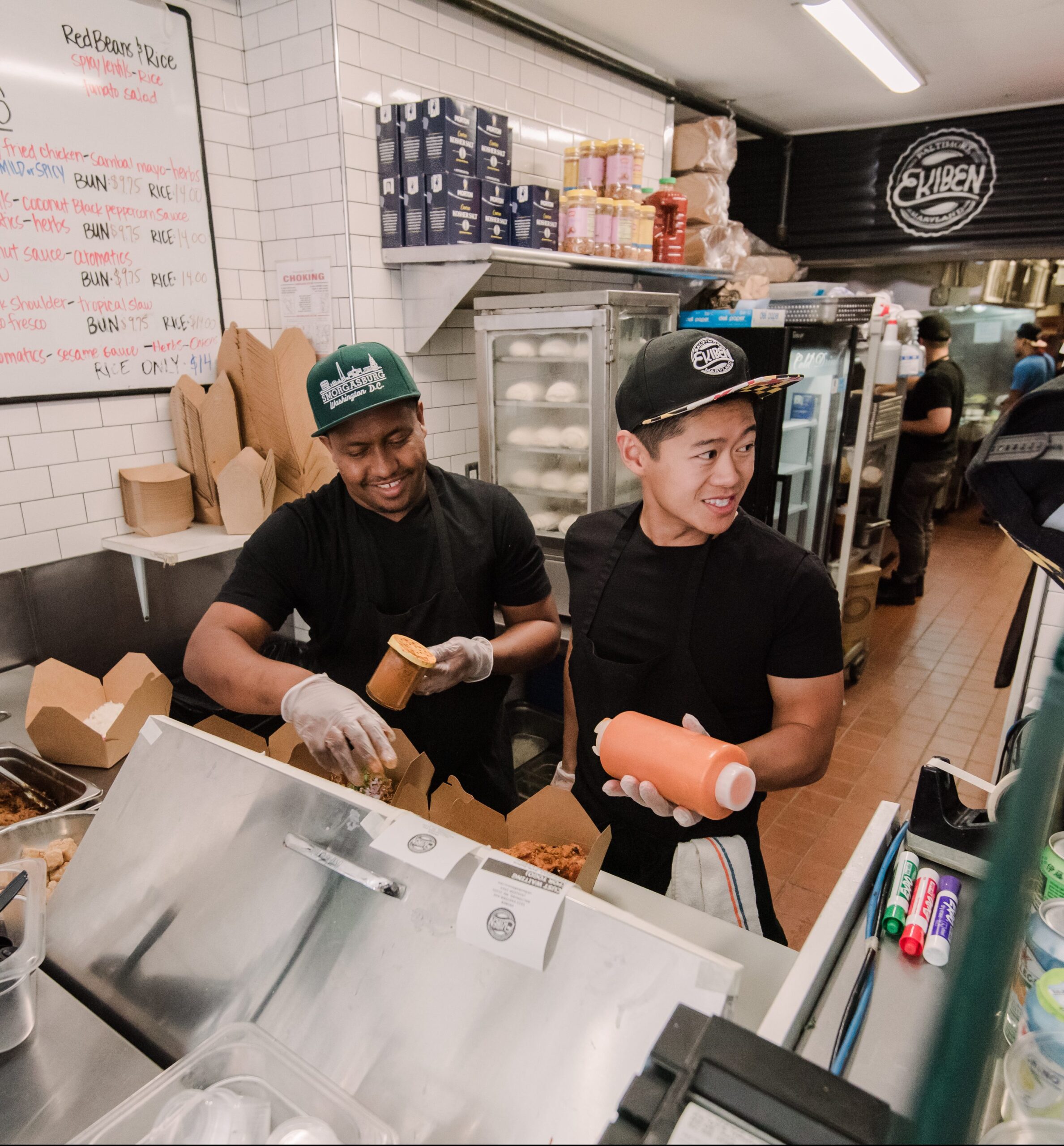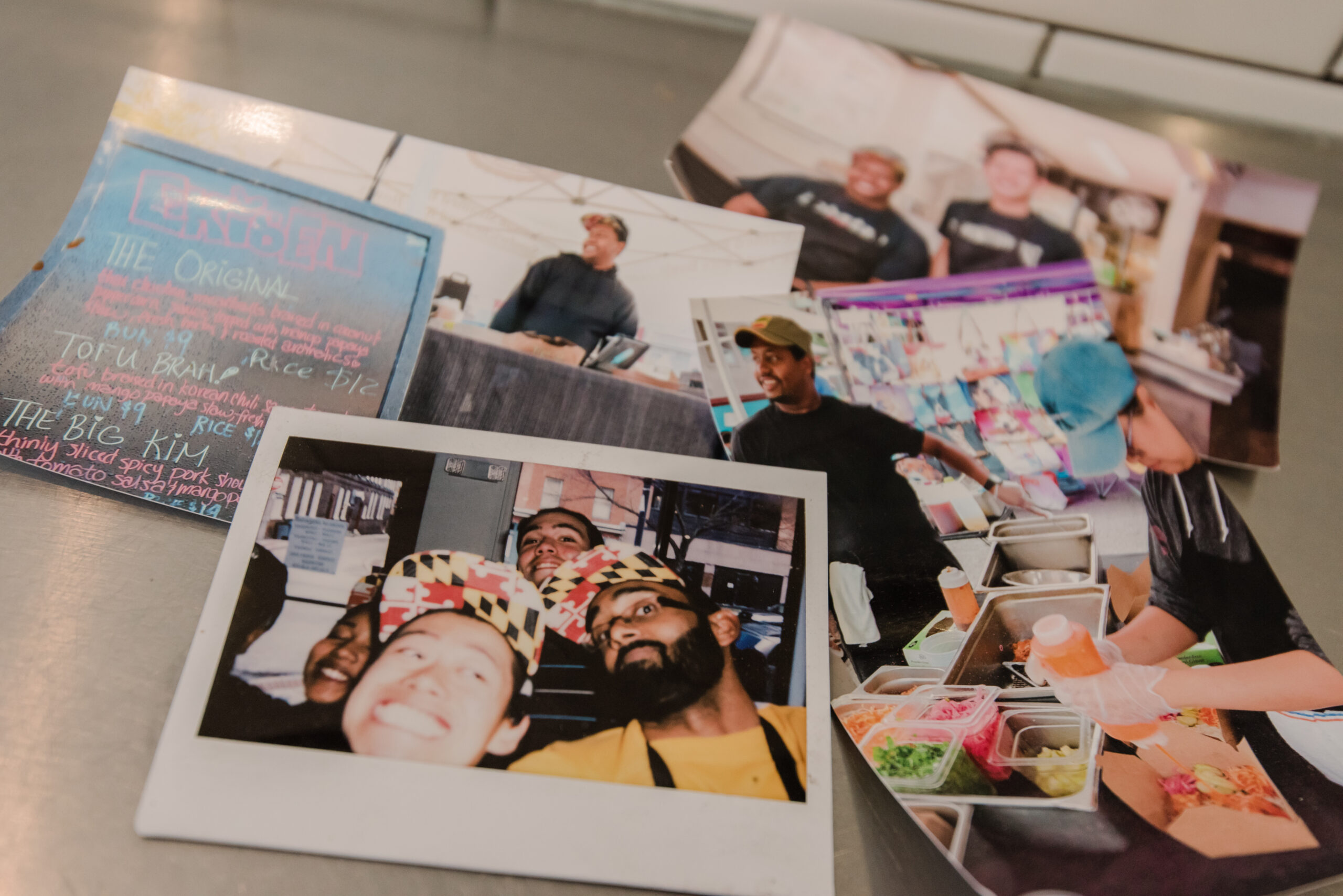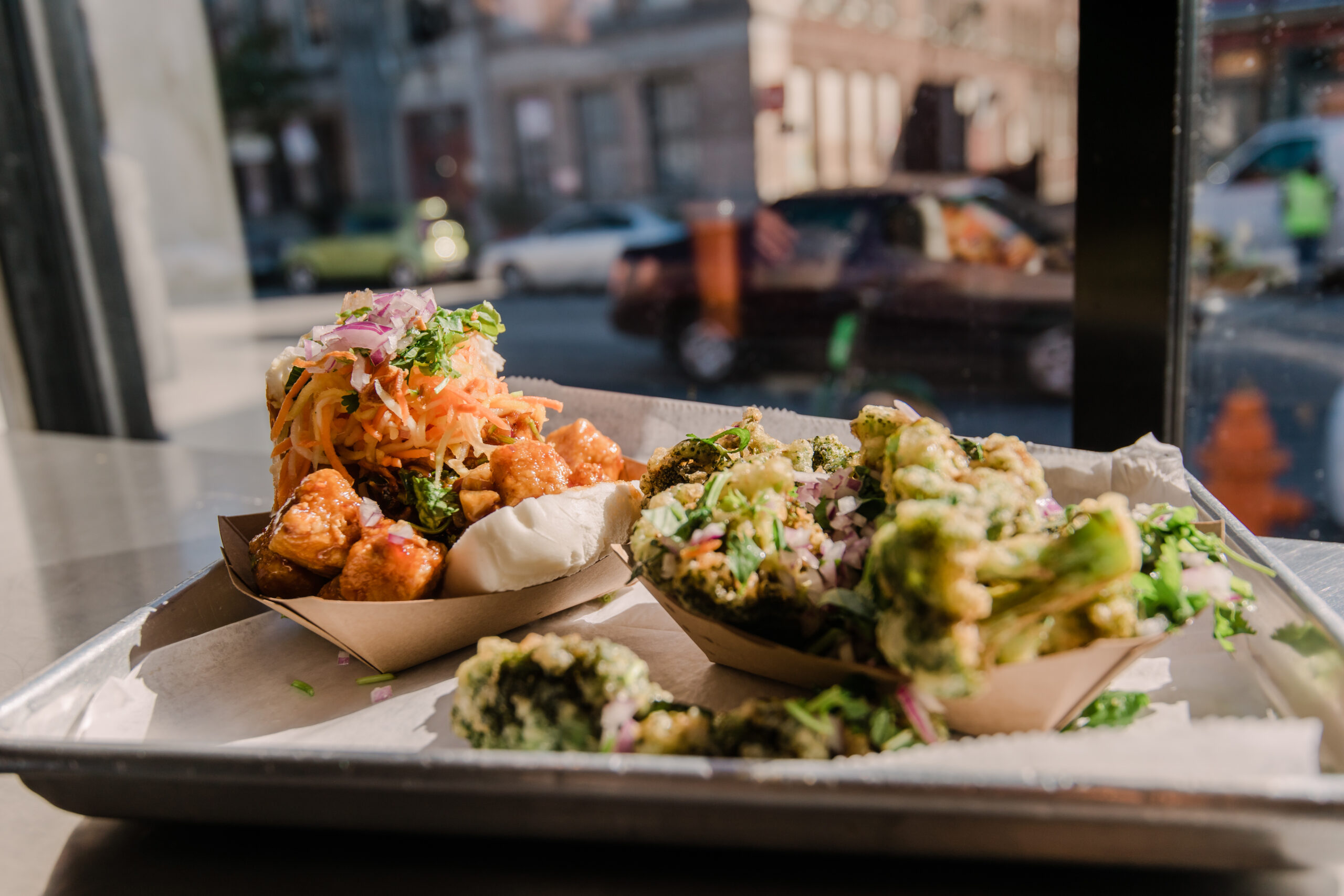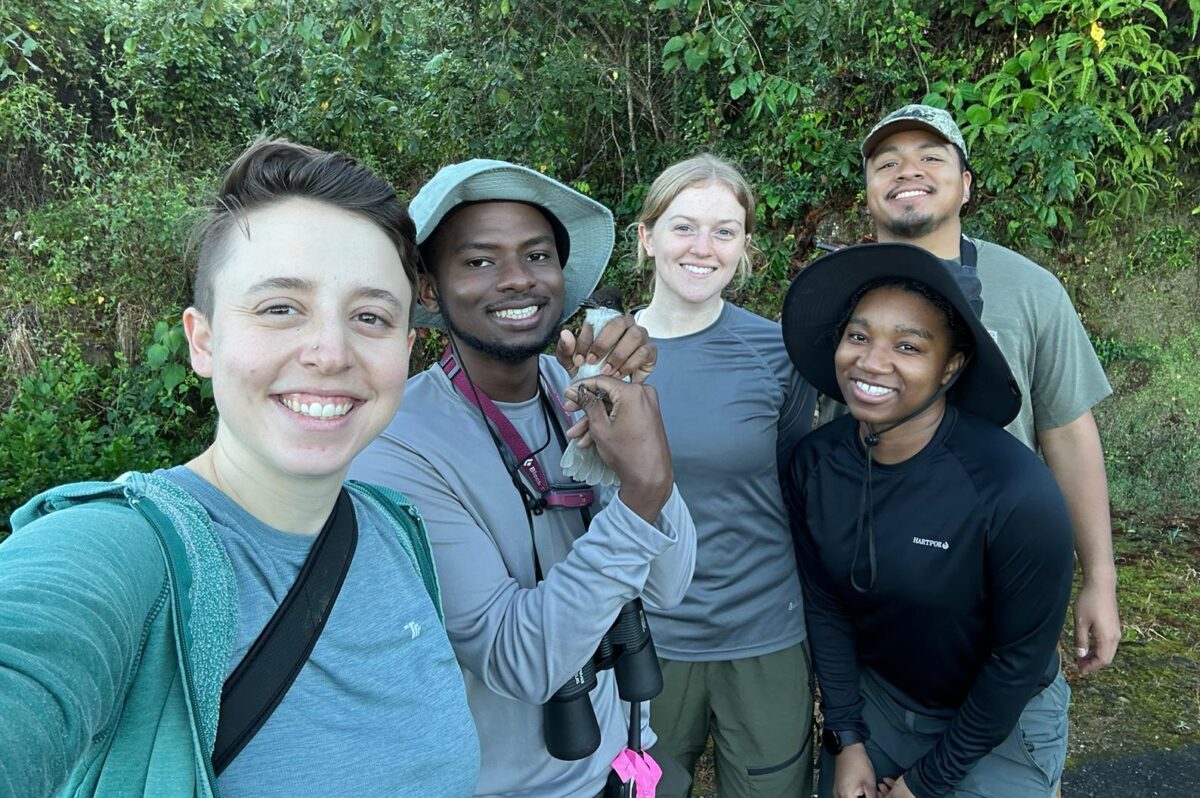If you’ve ever searched online for a place to eat in Baltimore, chances are Ekiben has popped up as a top destination again and again. Or, if you followed along with this year’s fried chicken sandwich feud between two fast food joints, you’ll have seen plenty of Baltimoreans resolving the issue by pointing to Ekiben’s classic Neighborhood Bird steamed bun. Yelp, Buzzfeed, and other national outlets reaffirm that this small storefront serving eclectic pan-Asian fare is worth the trip to Fells Point (with a second location in Hampden to open soon). Steve Chu ’12, economics, co-owner of the restaurant along with two other UMBC alumni, writes how the store owes its origins to UMBC and Baltimore City, and why these Retriever chefs care so much about the communities they serve.
Food has always been about community to me. My father worked endless hours running his Chinese restaurant, but on Mondays, he closed the restaurant and the whole family—aunts, uncles, grandparents—would go out to eat dim sum for breakfast. There’s be like 50 plates on the table. My relatives would urge me, eat, eat, try everything.
When Ephrem Abebe ’13, web development and information systems, Nikhil Yesurpriya ’13, M.S., ’16, biological science, and I started Ekiben in 2013 we wanted other people to enjoy food together, specifically this weird combination of Chinese/Taiwanese/Indian/Ethiopian cuisine. It was completely natural to us, coming from the food-focused cultures we came from, that food could unite disparate groups of people. The fact that Ekiben has been such a hit in Baltimore blows our minds, but is exactly what we hoped would happen.
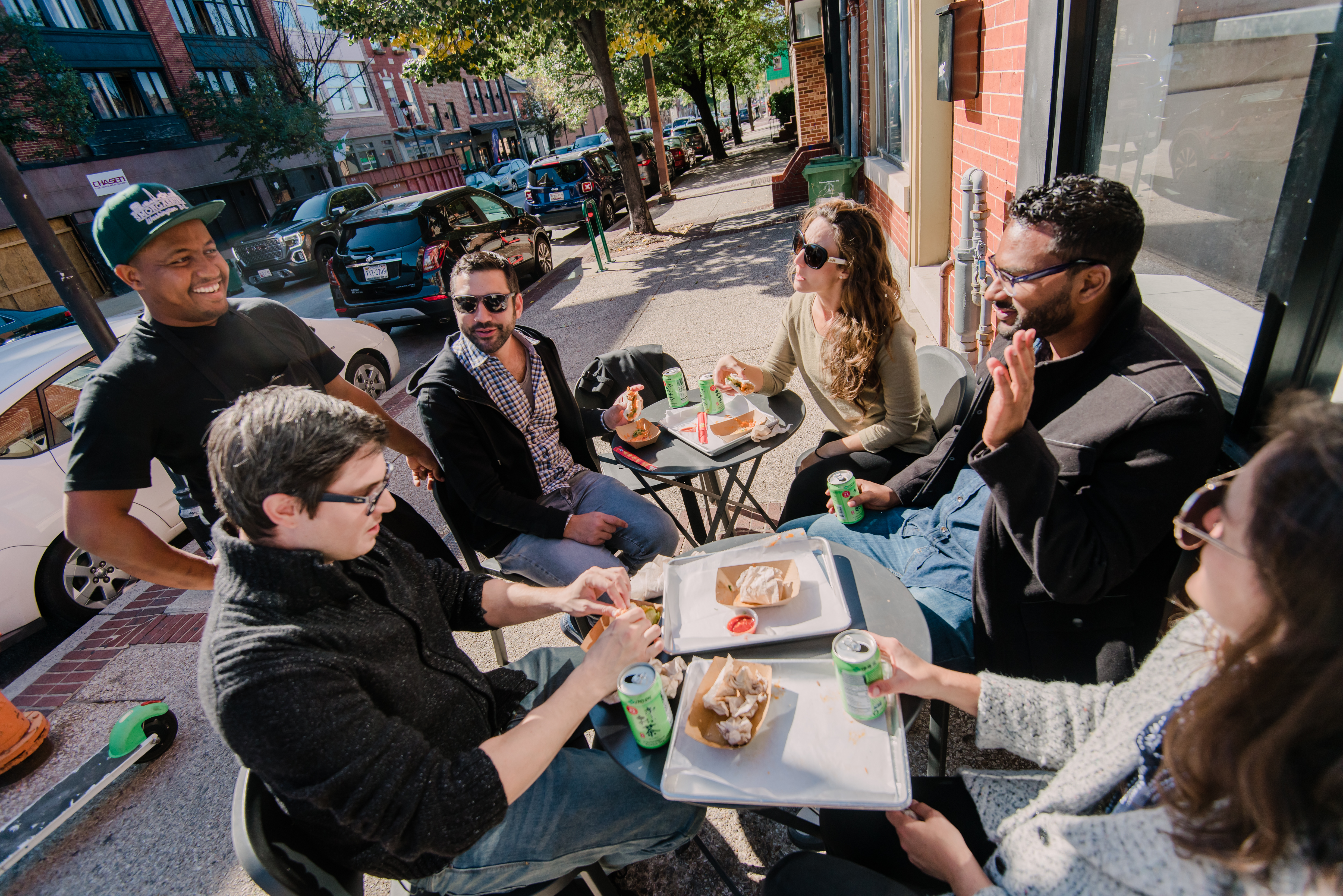
When we met at UMBC—Nikhil and I through suitemates and Ephrem and I while volunteering for Habitat for Humanity in Baltimore City—I was studying financial economics, but it was so heavily focused on crunching numbers. I switched to a straight economics major early on after I realized that I wanted to learn more about how people thought and behaved with money. My background from UMBC has helped me tremendously in my career.
Gib Mason ’95, economics, taught a course on entrepreneurship that gave me the confidence that we could take this leap, buy a hot dog cart, and sell meatballs or spicy tofu at farmers markets, which is how we started out. He steered the class away from traditional homework assignments and asked us for our reasoning behind our answers instead. That still resonates with me as a business owner.
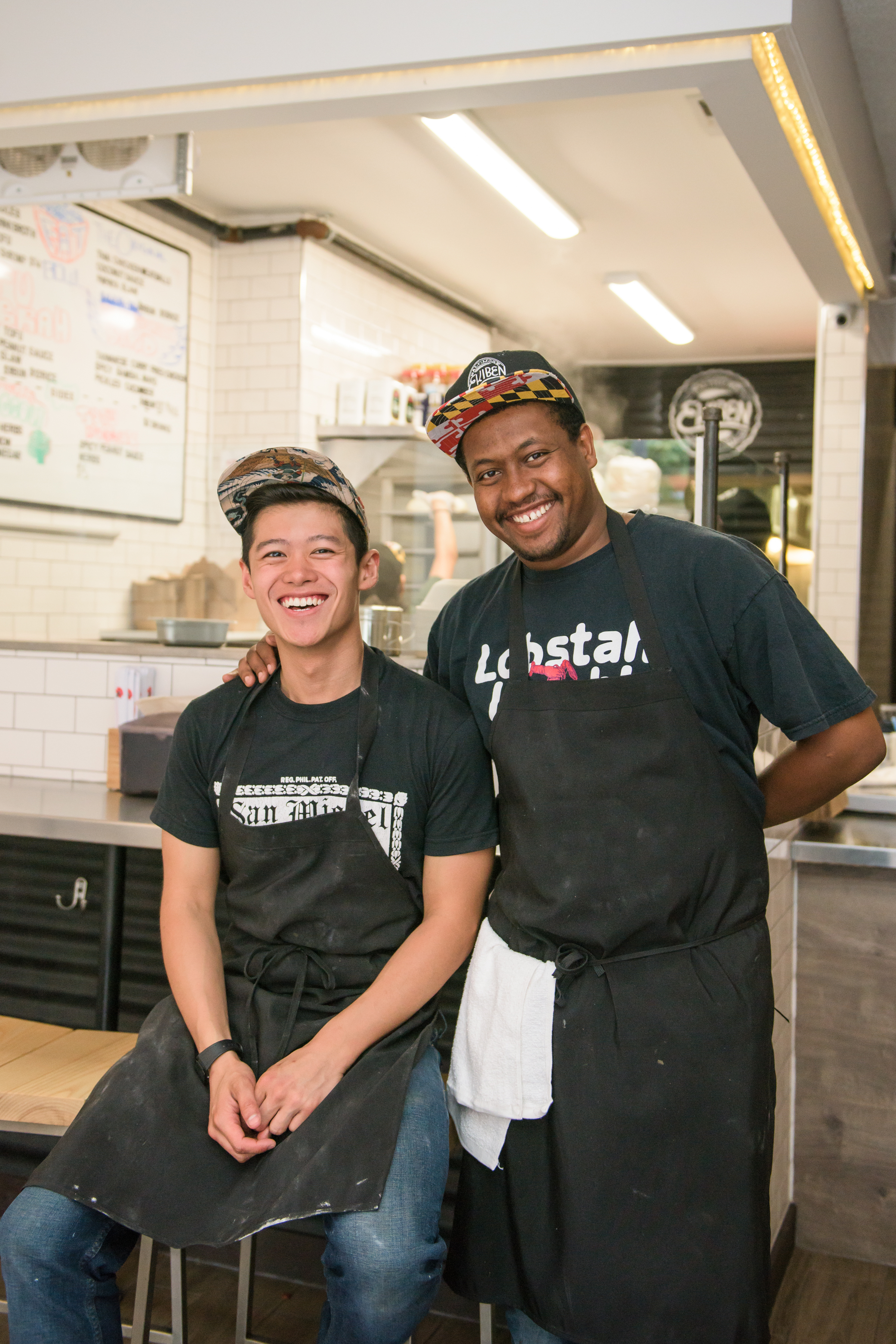
Gathering community around us has come as naturally as combining our love of food into affordable and delicious dishes. Fells Point has been like home to us, and Baltimore has supported us every step of the way. Even in unusual ways—getting the original food license for the hot dog cart as a couple of 20-somethings was so much easier than we anticipated. The licensing board was so supportive after we explained our vision, but that came as a complete surprise to us.
What came next could be surprising to some in the restaurant business, but in Baltimore, this seems par for the course. After struggling with our hot dog cart-turned eclectic Asian fare cart for about a year, we got invaluable support from other local chefs. Ekiben wouldn’t exist without the guys behind Black Sauce, Damian Mosley and Michael Singleton, and Ben Lefenfeld from La Cuchara. Our friendships with other local chefs led naturally into collaboration and guest chef takeovers.
The best example of that communal approach to food in the city is the Charm City Night Market—think of an Asian open air market, tons of people and amazing food—organized by Stephanie Hsu and the rest of the local Chinatown Collective. We were really proud to be a part of the inaugural year and subsequent events. It does what we want for the city. It brings people of all demographics together, and it’s always so densely packed, and there’s so much great energy in it.
We’ve partnered with so many excellent chefs from Baltimore and beyond, and this is another way we get to cross-pollinate with talented craftspeople. There’s this push for food to be “traditional” or “authentic” but at it’s best, food is art. And ultimately, we just want to make food that tastes good and build up the community while doing so. We start that goal in the restaurant, investing a lot of energy into developing leaders in the company. We have staff that’s been with us since the beginning. I hope the supportive culture that we built really just kind of oozes out, and it spreads.
And Baltimore has supported us every step of the way. Baltimore has raised us. Literally, this restaurant was built on every $7 meal we served at any market that would let us sell there. We didn’t have a Kickstarter page, we just had Baltimore showing up to buy our food.
At those family dim sum breakfasts, as communal as they were, my relatives were not encouraging me to start my own restaurant. They actually loudly and emphatically (to put it politely) tried to steer me in the opposite direction. They, like so many other immigrants, had come here with very little and worked so hard to break away from that poverty. They didn’t want to see me take that same road, I guess. But in the end, their harsh words really spurred me to succeed. How could I fail when they had given so much to make a successful life here?
—Steve Chu ’12
*****
Header image: Abebe and Chu work together in the small prep space where customers can watch their orders being created. All photos by Marlayna Demond ’11.
Tags: Baltimore City, Economics, Ekiben, Fall 2019

